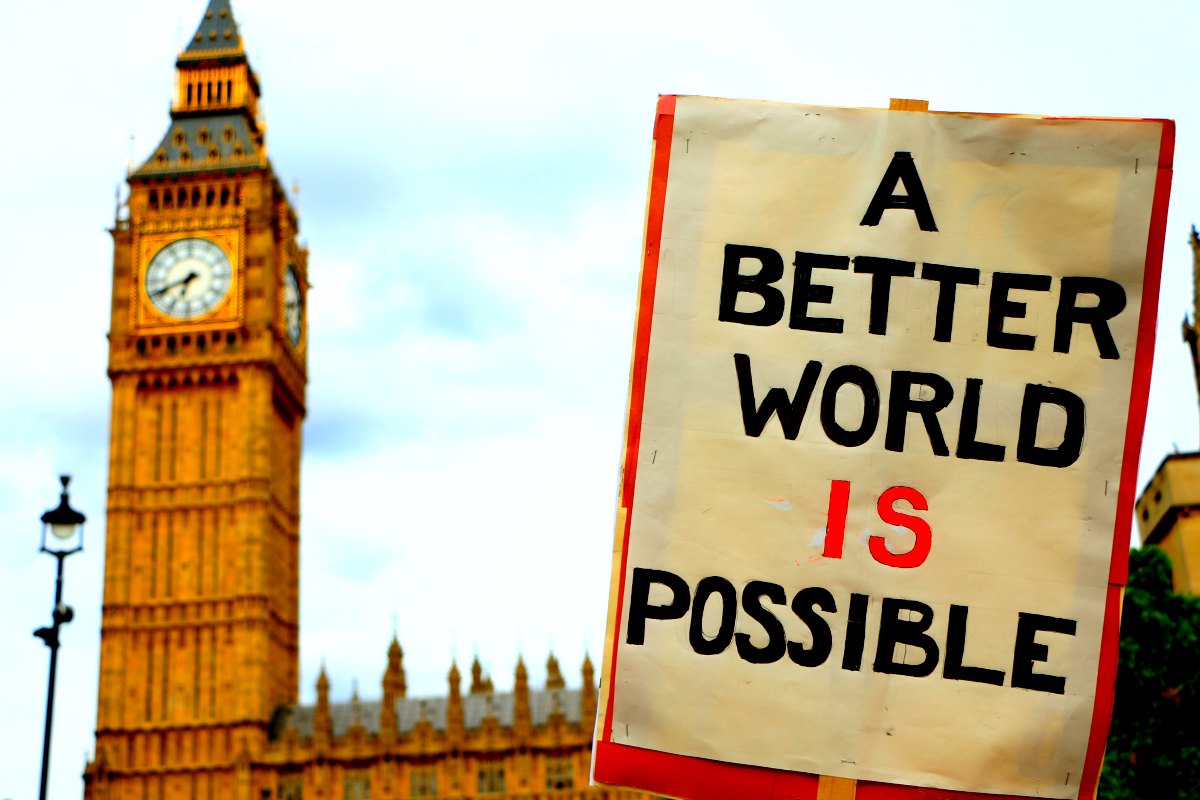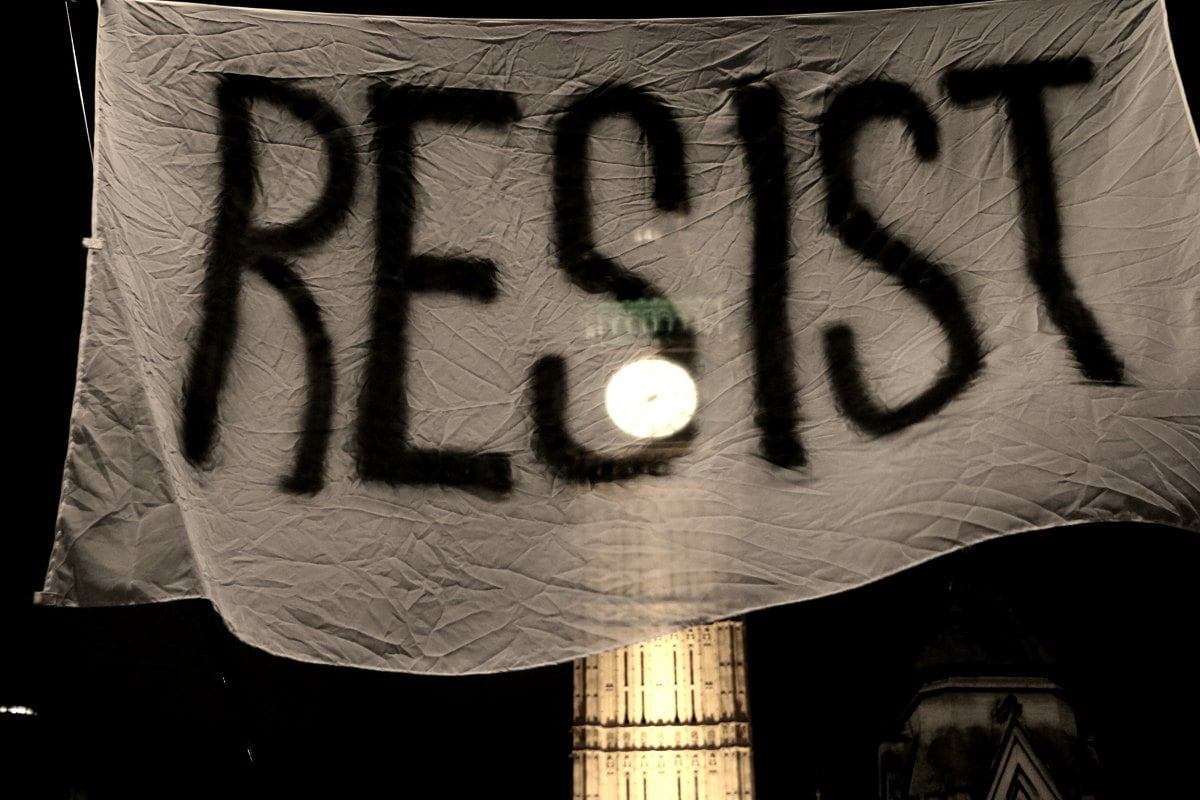New research shows that large numbers of people in Britain do not trust the establishment. Despite what liberal commentators say, this isn’t a belief in conspiracy theories, but a deep rejection of a broken system.
A recent study by YouGov and the University of Cambridge regarding conspiracy theories has discovered that 44% of British citizens believe that “even though we live in what’s called a democracy, a few people will always run things in this country anyway”. This was by far the most popular response in the survey.
The same report also found high levels of distrust in the establishment. 77% of people say they trust journalists “not much” or “not at all”; 76% distrust government ministers; and 74% say they do not trust company bosses.
Commentators in the liberal media have tried to represent these beliefs as some sort of fringe theory, on a par with believing that aliens have visited our planet. But this betrays their own cluelessness. Distrust with the current political system is not a conspiracy theory – it is a recognition of the realities of capitalism.
Behind closed doors
 While we are constantly told that we live in a democratic country, the truth is that establishment politicians are at the beck and call of the capitalists, reliant on their continued support to enact any programme or policies.
While we are constantly told that we live in a democratic country, the truth is that establishment politicians are at the beck and call of the capitalists, reliant on their continued support to enact any programme or policies.
Democratic involvement for most people is constrained to putting an X in a box every five years. Meanwhile, all the real decisions are taken behind closed doors by unaccountable bankers and bosses in the boardrooms of the City of London.
Harold Wilson, the former Labour prime minister, noted as such in his memoirs, recalling an encounter of his with the governor of the Bank of England less than a month into his first premiership.
“Claiming that our failure to act in accordance with his advice had precipitated the crisis,” Wilson remarked, “[the governor] was now demanding all-round cuts in expenditure, regardless of social or even economic priorities, and fundamental changes in some of the chancellor’s economic announcements…”
“I asked him if this meant that it was impossible for any government, whatever its party label, whatever its manifesto or the policies on which it fought an election, to continue, unless it immediately everted to full-scale Tory policies. He had to admit that was what his argument meant, because of the sheer compulsion of the economic dictation of those who exercised decisive economic power.”
This is the British Prime Minister, supposedly the most politically powerful individual in the UK, admitting that he was forced to dance to the capitalists’ tune.
Nationalise the monopolies
 This pressure will be exerted on any left-wing government that threatens the profits of the capitalists.
This pressure will be exerted on any left-wing government that threatens the profits of the capitalists.
The case of SYRIZA in Greece also bears a warning in this respect. SYRIZA came to power at the height of the European economic crisis, promising a radical programme that rejected austerity. But the democratically-elected Greek government was quickly instructed by the “Troika” (the European Commission, the European Central Bank and the International Monetary Fund) that they must instead carry out even deeper cuts. In the end, facing blackmail and sabotage by the financial markets, the SYRIZA leaders submitted to the capitalists’ demands.
Lenin identified this rule of the elite over 100 years ago in his famous work the State and Revolution. In this, he described parliaments under capitalism as being mere “talking shops”, and instead called for “working bodies” to govern along truly democratic and representative lines.
This means nationalising the banks and major monopolies, with workers’ control and management. We need representatives who are accountable, recallable, and only on a skilled workers’ wage. Only in this way can we have real democracy, with the country run by the many not the few.






